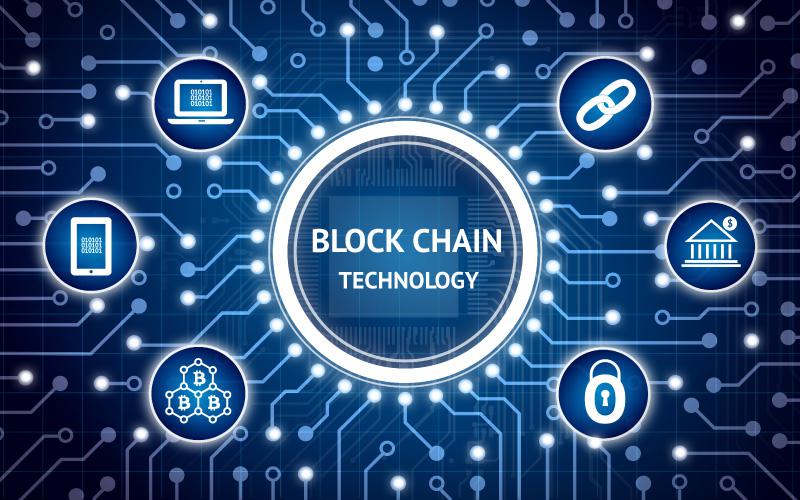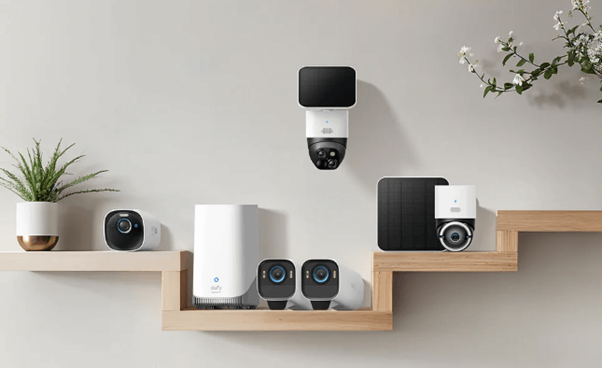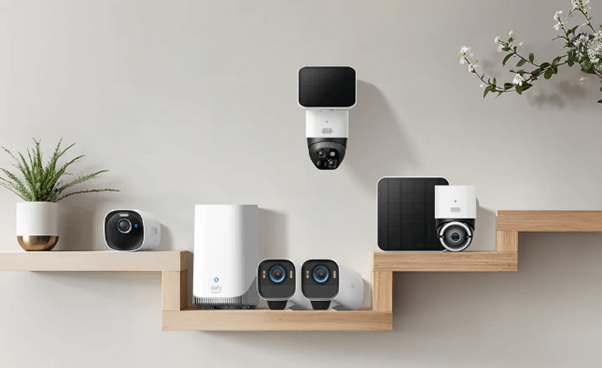What are the blockchain use cases in 2022? Blockchain technologies can create a wide range of new applications beyond cryptocurrencies and bitcoin. The technology’s capacity to generate more transparency and fairness while also saving businesses time and money affects various industries, from how contracts are fulfilled to making government operations more efficient. Before we get started, here’s a list of the best blockchain books in 2022. However, the global blockchain market is expected to reach nearly $17.9 billion in 2024, with a five-year CAGR of 46.4%. But, how and why do we use it?
Table of Contents
Blockchain use cases and how they have changed the industry
The distinction between simple blockchain-based applications and the hype is one of the most difficult aspects of blockchain. This may be tough because there are only a few substantial-scale real-world blockchain applications other than bitcoin. It has four types, and if you want to know them, we have already explained the 4 types of blockchain.
When Bitcoin was first released in 2009, it was described as a decentralized currency system operated by thousands of machines distributed across the globe, reducing reliance on centralized authorities. This network of computers, known as the blockchain system, uses distributed ledger technology to build a permanent record of transactions secured by cryptography and agreement among the computers that contribute to it, among other things.
Blockchain, like bitcoin, can be used to develop a wide range of services in finance, logistics, and public administration by providing greater security, transparency, and traceability. The global blockchain market is expected to reach nearly $17.9 billion in 2024, with a five-year CAGR of 46.4%. Even governments are enacting new legislation to boost blockchain usage. So, what does blockchain technology do so effectively that it has drawn so much interest?
Back in Berlin! Data Natives 2022, in person and online - tickets available now!
What does blockchain do well?
• Tracking/registry: The data and information are recorded in an unchangeable and transparent way, with no single party having asymmetric power over it.
• Data access/transfer: To establish a shared “truth,” data from numerous parties must be transferred in near-real time.
• Identity/authentication: Blockchain is a technology that allows for the management of identities and permissions for authentication or verification, including the ability to verify identity attributes without revealing sensitive information.
• Settlements: Settling revenue by recording movements of goods or revenues and the use of services/assets.
• Transactions: Enabling real-time payments and transactions.

• Token exchange: Multiple parties trade virtual currencies/tokens with inherent value. Virtual currencies may also be linked to fiat currencies, with equivalent amounts kept in escrow accounts.
What business benefits do these capabilities deliver?
• Security: Blockchain transactions are verified by a consensus algorithm and kept on numerous nodes worldwide, making DDoS attacks and modification of records nearly impossible.
• Cost efficiency: Because consensus algorithms create trust through transparency, middlemen that take a cut of transactions may be phased out.
• Traceability: Transactions can be recorded in an unalterable ledger, which may help avoid fraud and protect you from liability.
• Business process speed: Automated smart contracts may cut down on time it takes to complete transactions by removing the need for human monitoring.
• Token value: Virtual assets can have virtual and real-world value, as demonstrated by a virtual token’s usage in a loyalty points program.
• Confidentiality: Information may be shared without collaboration between organizations, as in the case of personal medical records.
• Neutral and equal: No one entity or individual owns the blockchain, ensuring the system’s trustworthiness and longevity. For example, if one of the key creators leaves, the system will continue to operate without them.
It’s certainly useful, but in what areas? Let’s take a closer look at blockchain use cases in 2022.
Blockchain use cases in 2022
There are several more applications for blockchain technology beyond Bitcoin. Below, we’ve outlined some blockchain use cases in the financial, commercial, governmental, and other sectors.
Smart contracts
Blockchain technology is utilized in many other sectors, including retail and hospitality. Blockchain can be used to develop smart contracts, which are computer protocols that execute the terms of an agreement between peers without the need for third-party verification or approval. Blockchain’s applications in smart contracts include the following:
Money laundering protection
The encryption that is crucial to the blockchain once again comes in handy when fighting money laundering. The foundation technology allows for recordkeeping, which aids in the process known as “Know Your Client” (KYC), during which a company verifies and identifies its clients’ identities.
Cybersecurity
Blockchains’ immutability, transparency, and decentralized nature make them extraordinarily secure. There is no single point of failure with blockchain storage. Because blockchains are decentralized, and the data stored in each block is unalterable, criminals can’t access the information. “Essentially, the intruder needs keys to many different locations rather than just one,” Makridis added. “The computing demands of the intruder skyrocket dramatically.”
IoT
Blockchains are being used for various purposes in the IoT, including supply chain management and asset tracking. A third application is to keep track of machine readings taken worldwide, whether they’re from the Arctic, Amazonia, a factory floor, or a NASA rover on Mars.
Cryptocurrencies
The idea of the blockchain was originally designed to manage digital currencies like bitcoin. While the two technologies compete in other transactions, they have also been divided so blockchains may operate for different purposes. Given the anonymity of crypto coins, blockchain is the only way to keep track of transactions with accuracy and privacy for all parties concerned.
Art
Non-fungible tokens, or NFTs, have become a huge topic in the art world as works of art produced with the technology are now being sold for millions of dollars at auctions. NFTs have enabled the creation of crypto art and digital collectibles, with artists, musicians, and influencers using the technology to profit more from their original and unique work. NFTs’ use may extend from digital art and music to proof of authenticity documents for real-world assets like paintings and jewelry. You can go to our article to learn more about blockchain art. You can buy NFTs in marketplaces like OpenSea.
Healthcare
The applications for blockchain in healthcare are virtually limitless. “There are several potential use cases: managing electronic medical record data, preserving health information, safeguarding information, and monitoring disease and epidemics, to mention a few,” David Brown, science and program director at the Qatar Precision Medicine Institute, added.
Real Estate
The typical homeowner sells their home every five to seven years, and the average person will relocate roughly 12 times throughout their life. Blockchain might be beneficial in the real estate industry. It would speed up house sales by quickly verifying finances, combat fraud via its encryption, and provide transparency across the whole selling and buying process.
Government
There are several blockchain applications in government agencies, such as voting systems. You can go to our article to learn more about blockchain in government, like how will blockchain transform the education system.
Voting
Blockchain technology has the potential to make voting more readily available while also enhancing security. Even if someone gained access to the terminal, hackers would be unable to alter other nodes because of blockchain technology. The government could tally votes more efficiently and effectively because each vote would be attributed to one ID. Since creating a fake ID is impossible, officials may count votes more accurately.
Trade Finance
Existing trade finance procedures are inefficient (i.e., analog paper processes) and have vulnerable points (e.g., lack of a trusted central authority) that phony traders may exploit. Blockchain can digitize trade finance to make it more efficient and secure. The following are some of the advantages of using it:
Supply chain transparency
The issue of verifying the origin of products is a major challenge. Customers may have complete insight and transparency into the items they purchase using a blockchain-based technology that tracks items from the manufacturing point through the supply chain. You can go to our article to learn more about blockchain-powered logistics.
Gaming
Developers have developed blockchain games as soon as cryptocurrency became well-known for payments and finance to show the many advantages that the technology may provide to gaming issues such as economic game manipulation by gaming firms, payment difficulties, possible shutdowns, and imbalances in gameplay. Blockchain offers new possibilities such as genuine asset ownership, consensus-driven updates, decentralized marketplaces, simplified tokens, and more by establishing an open-source, distributed, and transparent network for gamers to participate in.
Insurance
The insurance sector is rife with inefficiencies and prone to fraud. With applications such as improved fraud detection, recordkeeping, and reinsurance (insurance for insurers), the insurance industry benefits from blockchain. Blockchain also allows insurers to develop more innovative insurance business models by providing more sophisticated versions of on-demand insurance and microinsurance policies.
Although only a tiny fraction of blockchains have been commercialized, blockchain insurance solutions have the potential to fix many issues. According to 80% of insurance executives, either currently using or planning to experiment with blockchain technology across their company units, this technology can solve numerous problems.
Security
Because security is such an all-encompassing term, spanning everything from individual accounts to entire countries, blockchain has a solution for each level of complexity. Self-sovereign identity, where individuals may fully manage their personal information and secure data transmission and private messaging, is just a few examples of blockchain security solutions on the individual level.
Blockchain has been deployed at the organizational level. It has been used to keep track of data across a distributed network and avoid attacks at single points of weakness such as websites. Even countries like Australia, Malta, and China use blockchain for security purposes.
Energy
PWC suggests that blockchain technology may be used to execute energy supply deals, but it can also build the foundation for metering, billing, and clearing procedures. Other conceivable applications include document generation, property registration, asset management, origin guarantees, emission allowances, and renewable energy certificates.
Big data
Blockchain’s immutability and the fact that every computer continuously verifies information on the network make it an ideal storage solution for big data. You can go to our articles to learn more about AI blockchain new ways monetize data and blockchain and AI secure data processing.
Conclusion
Blockchain’s most distinctive features are decentralization, transparency, immutability, and automation. These characteristics may be utilized in various sectors to create many use cases. What do you think about the use of blockchain? Share your opinion in the comments.




